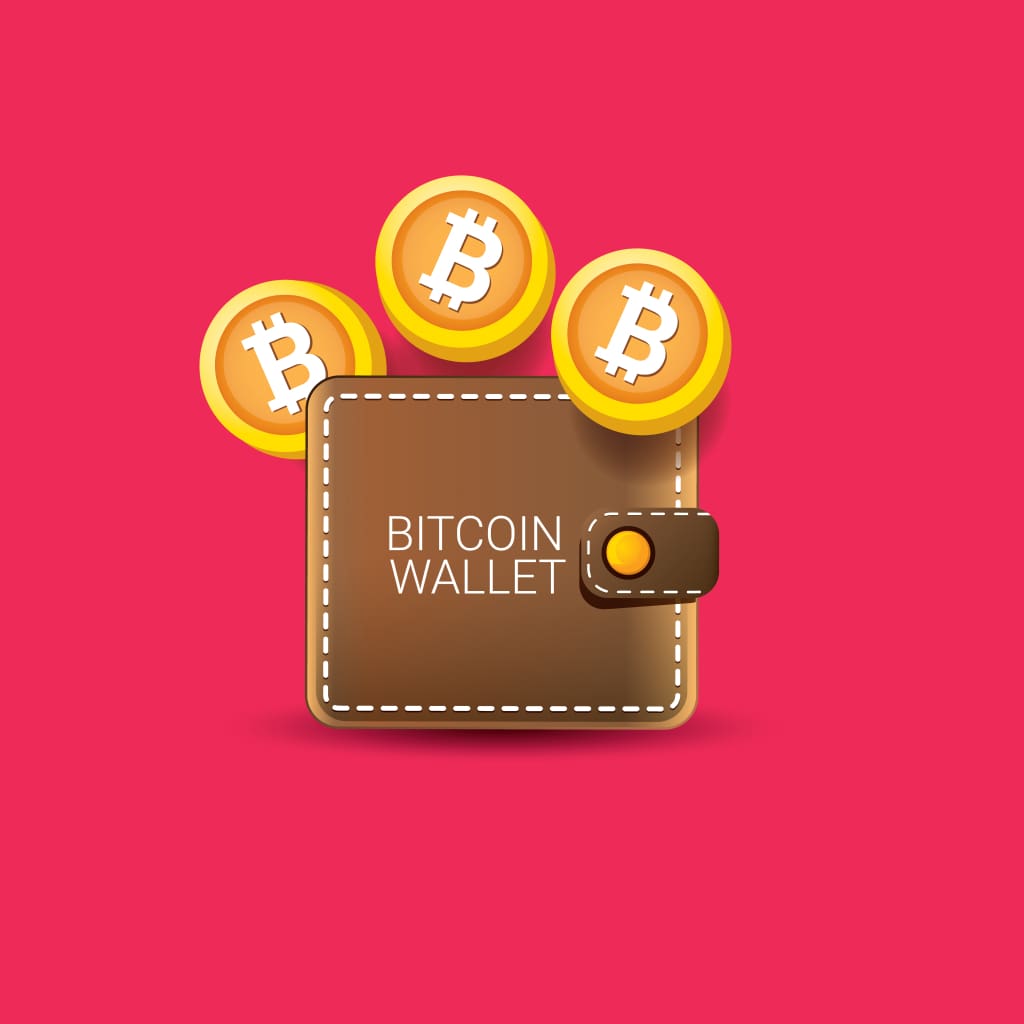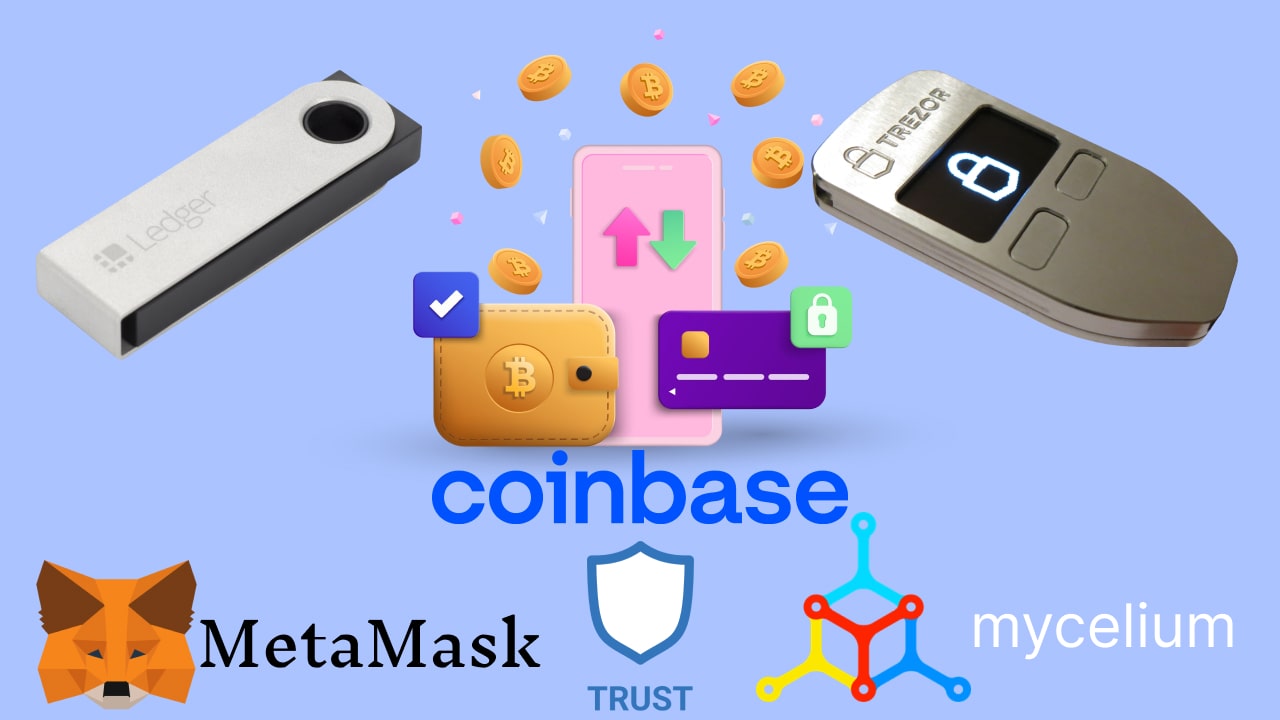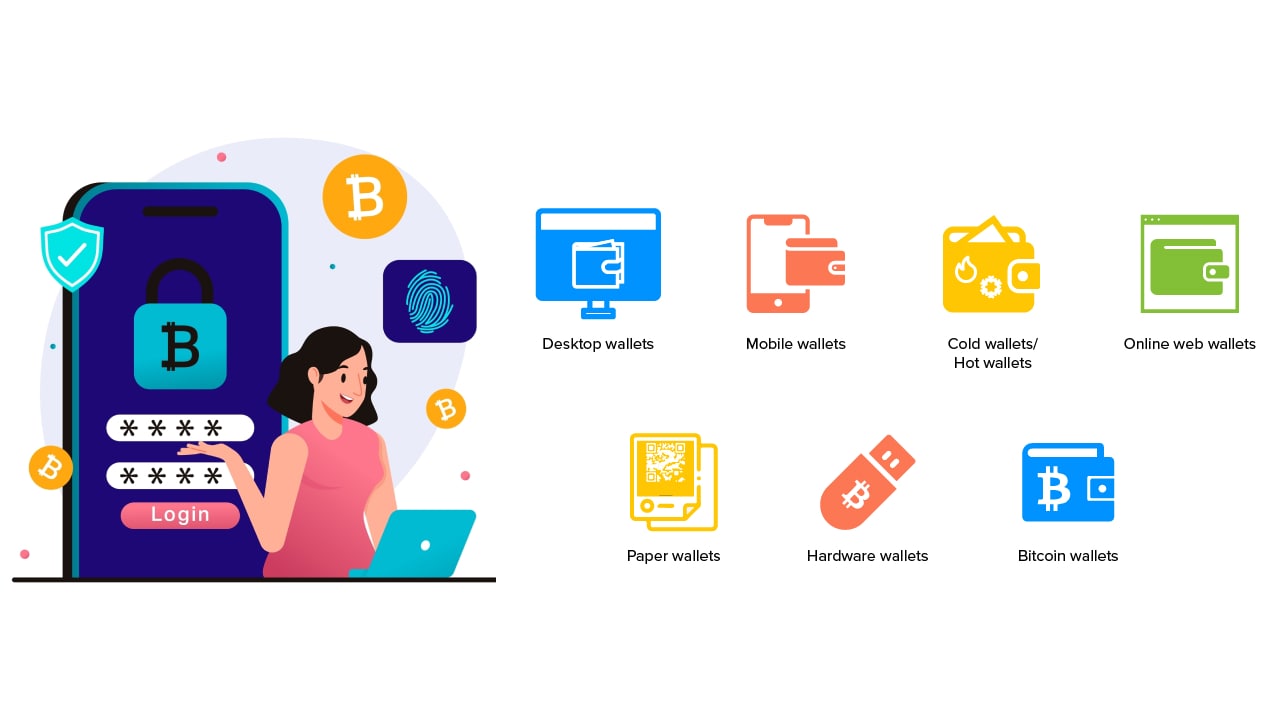
Is Bitcoin Legal at Online Casinos
Bitcoin's legality is a complex topic that varies by country. While some nations fully embrace…

Choosing the right Bitcoin wallet is crucial for anyone entering the world of cryptocurrency. For starters, understanding the options available and their features can simplify the process and ensure a secure storage solution for your digital assets. In this blog, we’ll explore some of the best crypto wallets suitable for beginners.
A good Bitcoin wallet combines user-friendly interfaces with robust security features. It should offer ease of use for transactions while providing strong encryption and backup options to protect your funds. Additionally, compatibility with multiple devices, such as desktops, mobile, and hardware wallets, adds convenience and accessibility.
When evaluating Bitcoin wallets, factors like security, ease of use, backup options, multi-device compatibility, and customer support should be considered. By choosing a reputable and user-friendly anonymous crypto wallet, beginners can navigate the cryptocurrency landscape with confidence and peace of mind.
In this blog, we will have a look at different Bitcoin wallets that meet certain criteria how to make a crypto wallet and we will also help newcomers choose the best wallet for what you need it for. Whether you prefer a software wallet for everyday transactions or a hardware wallet to hold you own keys, understanding the best options available is essential.
The best Bitcoin and crypto wallets offer a combination of security, ease of use, and versatility. Popular choices include hardware wallets like the different Ledger models and Trezor. Which allow you to hold your own keys. While software wallets like Coinbase, Metamask and Exodus provide user-friendly interfaces for easy everyday transactions. Mobile wallets such as Trust Wallet and Mycelium offer convenience on the go, and multi-signature wallets like Electrum add an extra layer of protection. Ultimately, the best wallet depends on what you need to use it for. So make sure to do your research before you choose which one to use.

A Bitcoin wallet is a digital tool for storing, withdrawing, and receiving Bitcoin. This anonymous Bitcoin wallet contains wallet address for Bitcoin and private keys that enable access to the Bitcoin stored in the wallet. There are different types of wallets, including software wallets that run online, hardware wallets that store keys (your passwords) offline, and paper wallets that are printed out.
Bitcoin wallets facilitate transactions via signing them with private keys, making sure you are protected when you store your cryptocurrency holdings. Understanding how Bitcoin wallets work is critical for safely managing your assets within the blockchain system.
To set up a Bitcoin wallet, you need to download the wallet you want, generate your Bitcoin wallet address, and securely store your private key. If you want to know what is a wallet address for Bitcoin, we go in to lots of detail below. So read on to find out more about these handy devices.
Bitcoin wallets provide numerous advantages to cryptocurrency users. Firstly, they offer a secure environment for storing Bitcoin, safeguarding it from unauthorized access and potential theft. Secondly, these wallets streamline transactions, enabling you to send and receive Bitcoin with ease.
Furthermore, certain wallets come with advanced features such as multi-signature authentication, enhancing security measures and granting users greater control. Additionally, they support the management of various cryptocurrencies, offering a centralized platform for handling diversified holdings.
Overall, a Bitcoin cash wallet empowers users with control over their digital assets. By having a wallet this enhances transactional efficiency, and ensures a secure yet convenient experience when keeping tabs on your crypto.

Bitcoin wallets are typically classified into two primary types: hot wallets and cold wallets. These categories offer distinct advantages, aligning with diverse user preferences and security requirements. Hot wallets, accessible online and linked to the internet, prioritize convenience, making them ideal for frequent transactions. In contrast, cold wallets, which operate offline, prioritize heightened security and are preferred for long-term asset storage. Familiarizing oneself with these Bitcoin wallet categories is crucial for individuals seeking to manage their digital assets securely and navigate the cryptocurrency landscape effectively. Here’s a detailed description of each category:
Hot wallets refer to cryptocurrency storage solutions that are online and connected to the internet, enabling users to access their funds conveniently for transactions. These wallets are accessible across multiple devices, including computers and smartphones, making them well-suited for regular trading or spending activities. While hot wallets are optimal for storing small amounts of cryptocurrency for everyday use, they may not be advisable for holding substantial sums of digital assets over extended periods due to their susceptibility to cyberattacks.
Cold wallets, a category of Bitcoin wallets, store private keys offline, offering robust protection against online risks. Their offline status shields them from hacking attempts, making them exceptionally secure. Cold wallets excel in securely storing significant amounts of cryptocurrency over extended periods. Below are two variations of cold wallets:
A paper wallet is a physical record containing the private key and public addresses necessary for cryptocurrency access and management. Generated offline to boost security, it serves as a form of cold storage. Users can print their keys and addresses on paper, shielding them from online risks.
Paper wallets excel in long-term cryptocurrency storage due to their robust security against hacking and unauthorized entry. However, storing them securely is vital to prevent physical damage or loss.
Desktop wallets are software programs installed on a desktop computer, enabling users to store, send, and receive cryptocurrencies. It securely manages the private keys linked to the user’s cryptocurrency assets. Desktop wallets fall into two categories: hot wallets, connected to the internet for convenient daily transactions, and cold wallets, offline for heightened security during long-term storage.
Desktop wallets offer users full control over their digital assets and are accessible through the desktop application, providing a user-friendly interface for managing cryptocurrencies directly from the desktop computer.
A hardware wallet is a physical device specifically designed to store cryptocurrency private keys securely. It operates offline disconnected from the internet, which greatly reduces the risk of hacking and unauthorized access. Users can securely generate and store their private keys on the hardware wallet, ensuring the safety of their digital assets.
When making transactions, the hardware wallet signs them internally and then sends the signed transaction data to the computer or mobile device, adding an extra layer of security. Due to their robust security features and protection against online threats, hardware wallets are highly recommended for the long-term storage of cryptocurrencies.
Selecting the best Bitcoin wallet for beginners is crucial for a safe and user-friendly experience in the world of cryptocurrencies. Beginners should consider factors such as security, ease of use, supported features, and compatibility with their devices. With a wide range of wallet options available, including desktop, mobile, hardware, and online wallets, beginners must understand the differences and choose a wallet that meets their needs while prioritizing security and ease of use. Taking the time to research and understand the various wallet options can help beginners make informed decisions and protect their digital assets effectively.
Choosing the best crypto wallet involves considering several key factors to ensure security and convenience. Factors like security features, supported cryptocurrencies, user interface, backup and restore options, privacy concerns, wallet reputation, and compatibility with device trust play crucial roles. By evaluating these factors mentioned in detail below, users can select a trusted crypto gambling websites and wallet that meets their needs while prioritizing security and functionality.

Bitcoin wallets and security are paramount considerations in the cryptocurrency world. As digital repositories for your Bitcoin holdings, wallets must offer robust security features to protect against unauthorized access and theft. This includes multi-signature wallets, two-factor authentication, regular backups, and software updates. Choosing a reputable wallet provider with a strong track record in security is crucial for safeguarding your funds. Understanding the importance of wallet security and implementing best practices in selecting and using wallets can significantly reduce the risk of loss or compromise of your Bitcoin assets.
Two-factor authentication (2FA) stands as a vital security element within Bitcoin wallets. It introduces an additional protective layer by mandating users to confirm their identity through a secondary method, like a code sent to their mobile device or an authentication app, alongside their password.
The inclusion of 2FA notably boosts the security level of Bitcoin wallets, raising the difficulty for unauthorized individuals attempting to gain access. It’s crucial to select a wallet incorporating 2FA and to activate this feature, fortifying the security of your Bitcoin assets and fortifying defenses against potential unauthorized access and theft.
This setup is beneficial for businesses, joint accounts, or anyone seeking heightened security. Even if one key is compromised, the funds remain secure as the attacker would still need access to additional keys. Choosing a Bitcoin wallet that supports multisig functionality can significantly bolster your security posture in managing cryptocurrency assets.
Regular backups are essential for ensuring the security of Bitcoin wallets. Backing up your crypto wallet regularly safeguards against data loss due to device failure, theft, or accidental deletion. It’s crucial to store backups securely, such as on encrypted external drives or cloud storage with strong authentication measures.
By maintaining up-to-date backups, you can restore your wallet and access your funds in case of unforeseen circumstances. Some wallets offer automatic backup features or reminders to facilitate regular backups. Prioritizing this aspect of security helps protect your Bitcoin holdings and provides peace of mind, knowing that you can recover your wallet’s data if needed.
Regular software updates play a vital role in enhancing the security of Bitcoin wallets. Developers frequently release updates to crypto wallet address vulnerabilities, improve performance, and implement new security features. By keeping your crypto wallet software up-to-date, you reduce the risk of exploitation by malicious actors and ensure compatibility with the latest security protocols.
Additionally, software updates often include patches for known security flaws, making it crucial to install updates promptly. Many crypto wallet providers offer automatic update notifications or allow users to enable automatic updates for convenience and enhanced security. Staying vigilant about software updates is a fundamental practice in maintaining the security of Bitcoin wallets.
In conclusion, selecting the best Bitcoin wallet for beginners is a crucial step in entering the world of cryptocurrencies safely and securely. It’s essential to prioritize safety features like two-factor authentication (2FA), multi-signature wallets, regular backups, and software updates to protect your digital assets from potential threats.
User-friendly design and compatibility with various devices also play a significant role in ensuring a seamless and convenient experience for beginners. A crypto wallet’s reputation and track record in the industry should also be considered to gauge its reliability and trustworthiness.
By taking these factors into account and conducting thorough research, beginners can choose a Bitcoin wallet that meets their needs and provides the necessary security measures to safeguard their funds. Starting with a secure and user-friendly wallet sets a solid foundation for navigating the complex world of cryptocurrencies and allows beginners to manage their assets with confidence and peace of mind.
Beginners set up a Bitcoin wallet by selecting a wallet type (hot or cold), downloading the wallet software or app, generating a wallet address, securing their private keys, and accessing the wallet for transactions and storage.
Bitcoin wallets, which are used to store cryptocurrency securely, include hot wallets (web-based, mobile, and desktop) and cold wallets (hardware and paper wallets).
To ensure your Bitcoin wallet’s security, use reputable wallets with strong encryption, enable two-factor authentication, regularly update software, and keep your private keys offline and secure.
Hot Bitcoin wallets are connected to the internet, allowing easy access to transactions. In contrast, cold wallets store private keys offline, enhancing security against online threats.
Yes, it’s possible to have multiple Bitcoin wallets, offering benefits such as increased security by separating funds and managing different types of transactions or investments more efficiently.